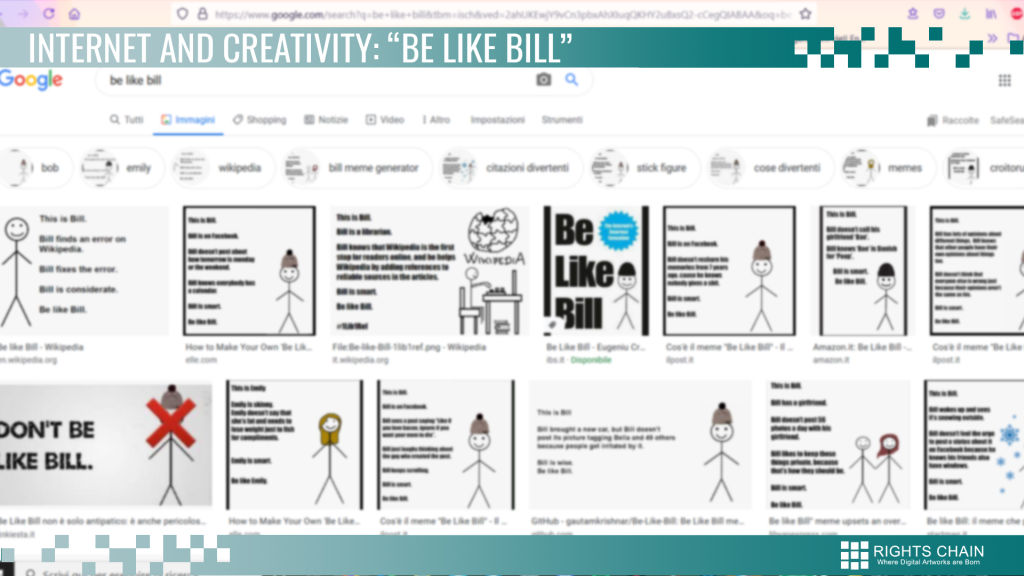Creativity, Internet and Business: "Be like Bill"

- 2018-07-11
- Sebastian Zdrojewski
- Opinions
Recently, a publisher announced the intention to make a publication with the works about "Bill", a meme born on the web, which has gained quite some success. Wrong or unfair business choice? Not really: if there is a profitable opportunity, it's not wrong to take it.
What triggered an interesting reflection, however, was the ability to track the origin of all the memes that were born from the "Bill" phenomenon in time. The first time I saw a Bill cartoon was about a couple of years ago (I think), and I liked it, because it conveyed a sort of community spirit. In time, more and more versions of it came out, with various different messages, and even new characters.
Now, I could ask myself: how is it possible to track the original author of every meme? The speed at which material spreads on the Internet is uncontrollable, and that is not the only means through which memes spread: we should also consider Instant Messaging services, such as WhatsApp, Telegram, Snapchat, you name it.
Where did the idea originate?
Who did it "truly" come from?
I'm not talking about the original idea, but rather all the derivative works. Internet can be an ugly thing, and it's easy to get lost in that ocean of content (just have a look at how many results for "Be like Bill" come up on Google Search). And the problem does not occur today, when someone decided to publish a volume focused on a viral phenomenon, but rather in a few months, or even years, when someone wakes up and says "Hey, I was the one who made that!"
The real issue is that it's not possible to place a signature on one's work before it's too late, because these problems usually come out after a while, and even though Internet is still particularly young, this is only the beginning for this problem.
If you think we're furthering our own cause... you're right. We created Rights Chain precisely because we are aware of this problem, and we have chosen to walk the (hard) path to try to change something for the better.
